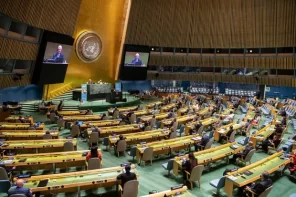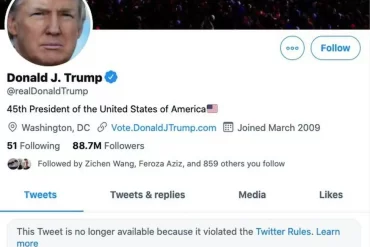Let me first say that I, a commoner, condemn every kind of killings: killing in the name of religion, in the name of saving democracy, in the name of delivering ‘peace’. And I condemn Charlie Hebdo attack because it killed 17 people, and it hurt many more in different ways.
However, let’s just take a moment to rethink what the attack was all about. Many argued that the attack was a response to Charlie Hebdo’s cartoons that ridicule the Prophet Muhammad. On social media, people passionately articulated arguments for and/or against both the assailant and the victims.
France’s relationship with its Muslim community, approximately 5 million and the largest in Europe, has been bitter. For example, Time reports that in 2008, a French court denied a Moroccan woman French citizenship on the grounds that her veil and her submissiveness to her husband were “assimilation defects” and in 2010, the French Senate banned public wearing of face-coverings, including the Muslim face-veil, the niqab.
Yet the same article on Time points out that “the vast majority of French Muslims embrace the Republic’s legal and cultural norms….France’s Muslim organizations are using legal proceedings, not violence, to challenge what they see as institutional discrimination.”
So, what do you do if you are a non-state actor like Al-Qaeda and want to gain unconditional support from the already struggling Muslim community in France? You would do something similar to what Michael Deacon of the Telegraph describes –
…they merely pretend to be offended by cartoons, in order to give themselves a pretext to commit murder. Murder so horrifying, on a pretext so unWestern, that non-Muslims – blinded by grief and rage – turn on Muslims. Blame them. Persecute them. Burn their book, attack their mosques, threaten them in the street, demand their expulsion from Western societies. Actions that, in turn, scare Western Muslims, isolate them, alienate them. And thus drive some of them to support – and even become – terrorists.
Result: terrorists swell their ranks for a civil war they long to provoke non-Muslims into starting.
The attack by Al- Qaeda perhaps was not for the ‘love’ for Prophet Muhammad. It is hard to say whether they even care about Him. The attack was more of a selfish strategic move that creates the opportunity for Al-Qaeda to instill radical ideology in French Muslim community.
Charlie Hebdo has a longstanding history of “mocking, baiting and needling French Muslims.” However, that’s rarely a legitimate excuse to kill people for offending someone’s beliefs.
Even before accusing Charlie Hebdo or anyone else for ‘mocking’ Prophet Muhammad or of the ignorance about Islam, we need to point our fingers to coreligionists. Anyone who has ever claimed murderous terrorist like Al-Qaeda does not represent ‘real’ Islam should take action against them for belittling their religion. Anyone who believes that Islam is a religion of peace should be fighting ignorant bloodthirsty religious extremist and say “you embarrass my prophet by killing in His name.” Anyone who has ever felt humiliated by those ferocious murderers who claim to ‘save’ Islam need to stand up against them for scorning Islam. 1.57 billion Muslim adherents should be asking how slayers like those have become a symbol of religion.
It’s also noteworthy that right-wing National Front of France advancing its anti-immigration, anti-Islam agenda in the wake of this event. After Charlie Hebdo’s shooting, there have been “54 anti-Muslim attacks” including arson attack on mosque and beating of Muslim boy. Isolating French Muslim community is perhaps not the best strategy. Not only in France, there attacking has created an opportunity for far right parties in Europe to seek leverage. For example, in Germany the ongoing anti-Islam protest has been experiencing dramatic rise.
What is our responsibility to appease the tension between far right and hyper-liberals. We can recall Edward Said’s words from 1993, describing the role of an intellectual points to “someone whose place it is to raise embarrassing questions, to confront orthodoxy and dogma (rather than to produce them), to be someone who cannot easily be co-opted by governments or corporations, and whose raison d’etre is to represent all those people and issues who are routinely forgotten or swept under the rug.”
On one hand, French government and magazines like Charlie Hebdo need to “confront orthodoxy and dogma” against their Muslim community instead of fabricating them. On the other hand, Muslims need to hold ourselves responsible for contributing to create “orthodoxy and dogma” about the religion. Instead of playing into extremists bloodstained hands by isolating and, both parties as well as individuals need to engage in debates that offer a better understanding and compassion.
The writer is a student of Asian University for Women.






